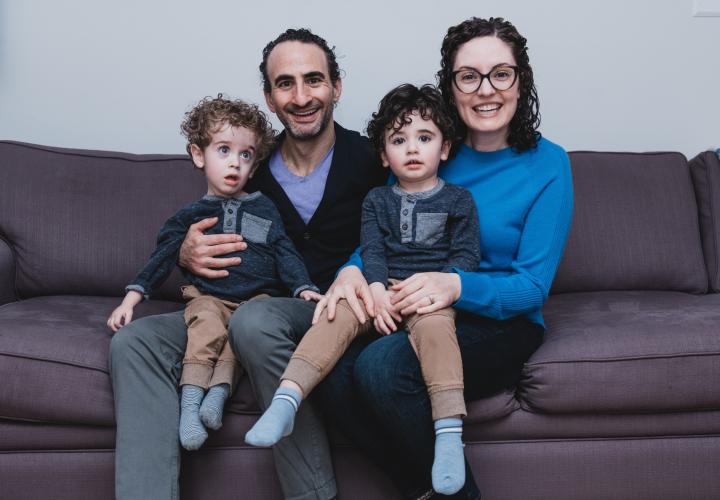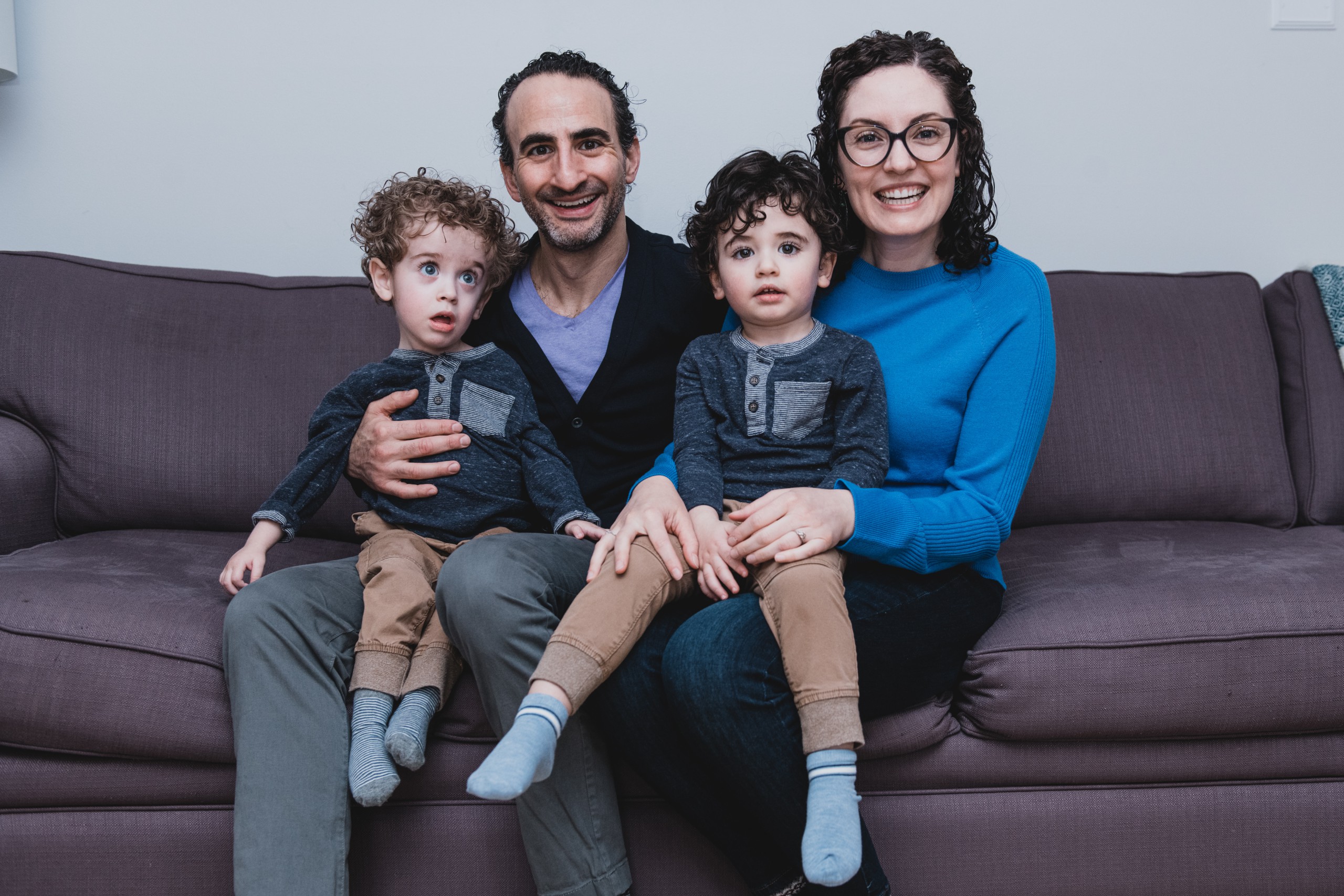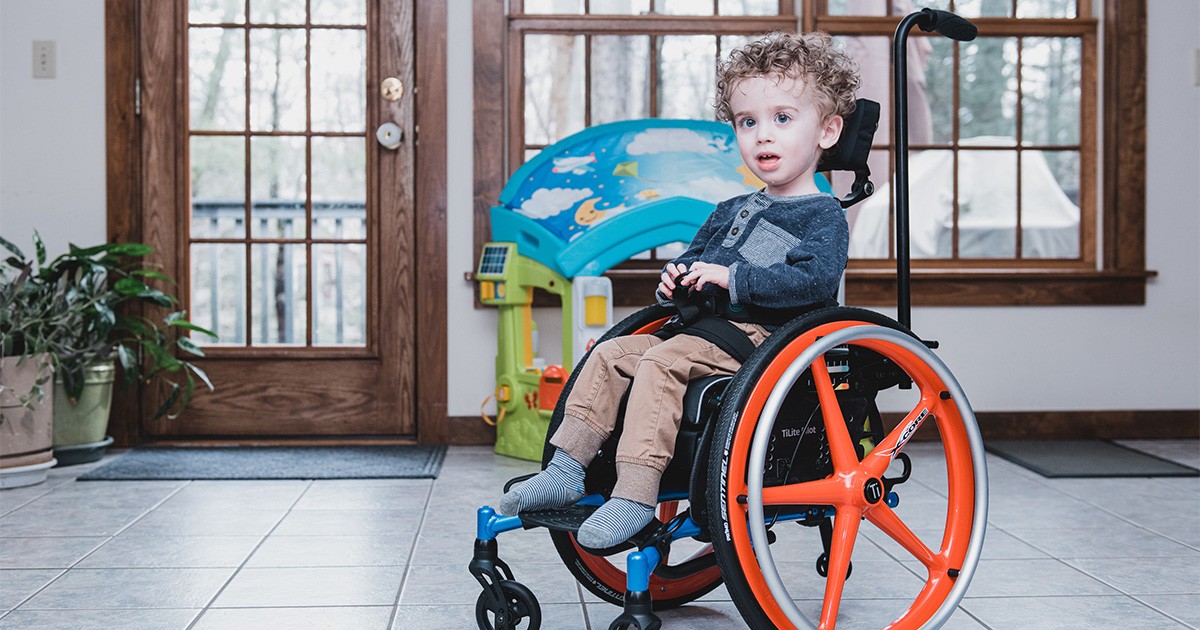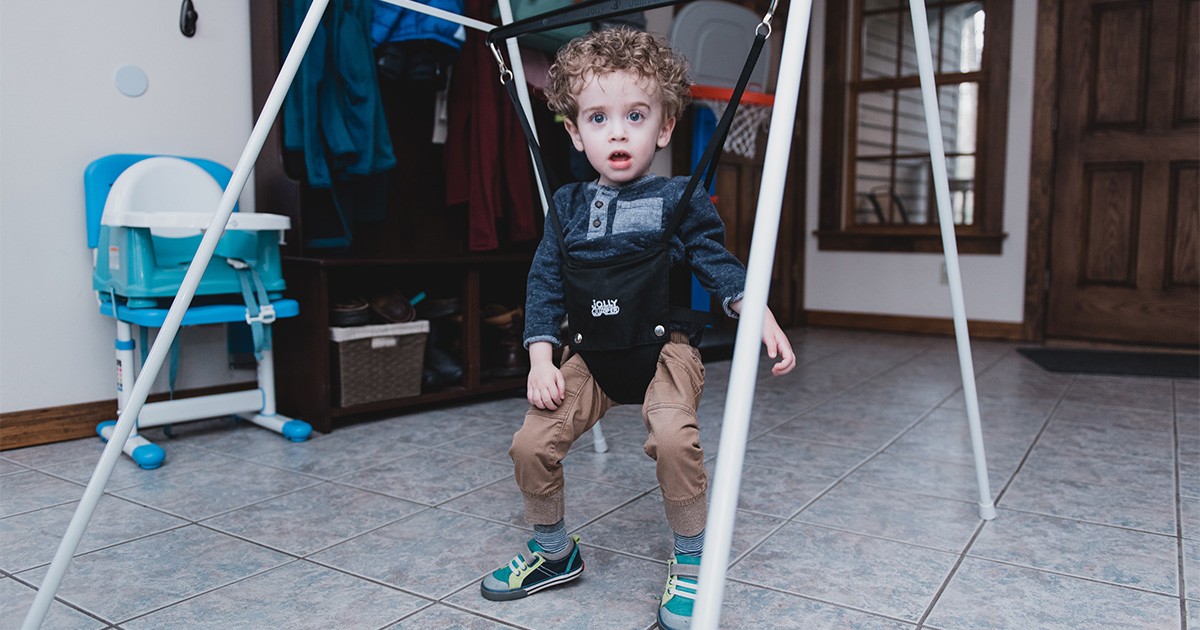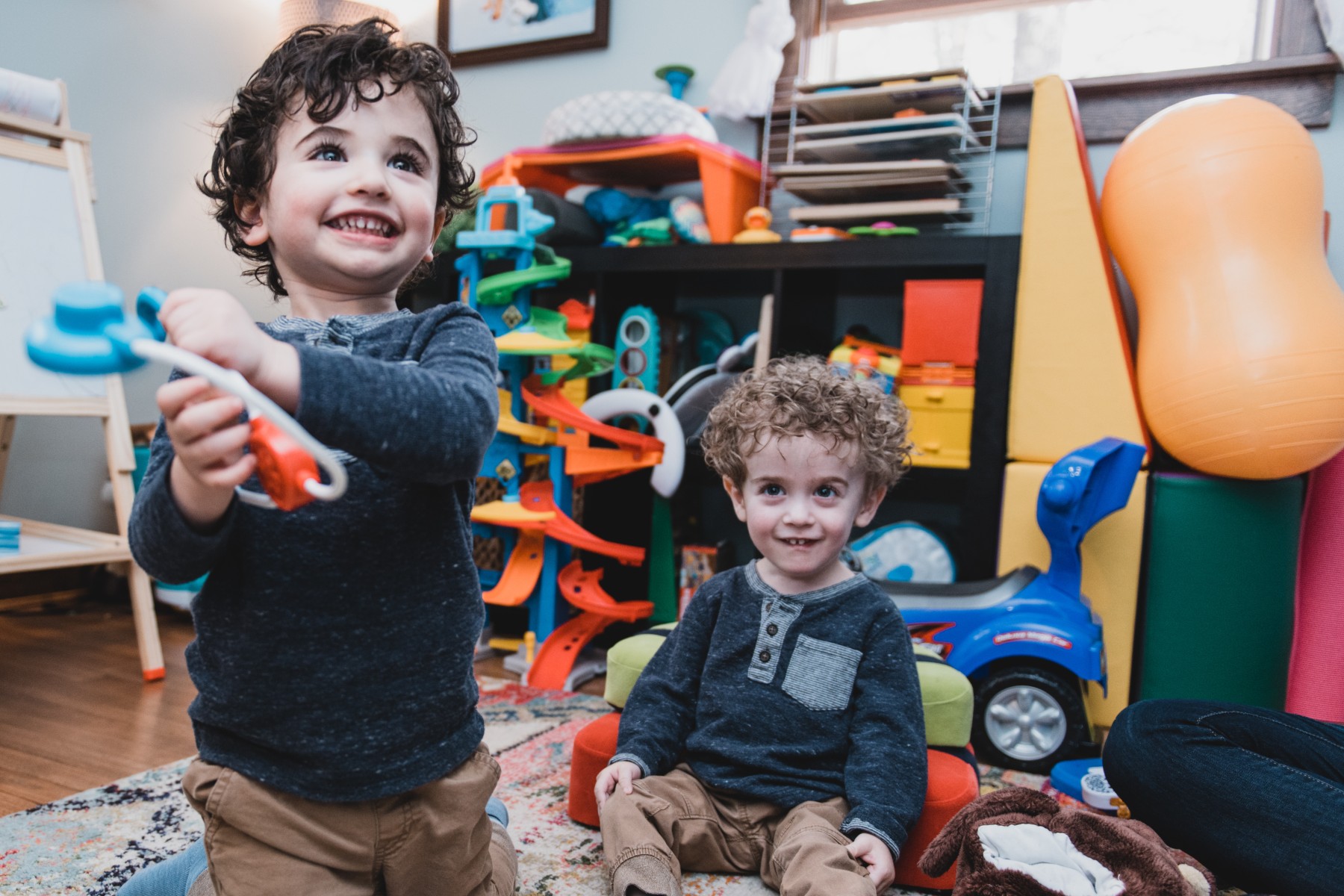Ashley Burkman and her husband, Matt Chella, were thrilled to welcome their twin sons Calvin and Carter into the world in May 2019. The pregnancy had been a healthy one for Ashley with no signs of anything abnormal for the babies. However, shortly after the boys’ birth at 38 weeks, doctors became concerned about Carter’s health.
“Carter initially had some issues with feeding and low blood sugar,” says Carter’s mom Ashley. “He spent a day in the Neonatal Intensive Care Unit, but we were sent home once we were stable.”
After a week at home, Ashley and Matt noticed that Carter was not thriving in the same way his twin brother was. They brought Carter to Connecticut Children’s, where doctors admitted him for an evaluation. After many tests, no specific cause of Carter’s trouble was determined. Carter’s neurologist, Gyula Acsadi, MD, PhD, Connecticut Children’s Division Head of Neurology, recommended further testing to assess markers for muscle breakdown, which helped the family get answers.
“Find joy.”
Dr. Ascadi diagnosed Carter with Laminin Alpha-2 Congenital Muscular Dystrophy (LAMA2-CMD), which is also known as Merosin-Deficient Congenital Dystrophy Type 1A (MDC1A). The condition is a rare congenital neuromuscular disease that affects 1 to 4 people out of every 100,000. It causes weakness and atrophy of muscles used for movement.
After receiving the diagnosis, Ashley, a naturopathic doctor, and Matt, a chiropractic doctor, spent a lot of time researching his condition. “We felt so alone and scared with the various presentations and the real possibility that his lifespan is going to be affected,” says Ashley.
Ashley says she will never forget Carter’s first follow-up appointment with Dr. Ascadi after receiving the diagnosis. “I remember pulling in with a knot in my stomach knowing the gut wrenching questions I was about to ask this doctor,” says Ashley. “The biggest one was how long did he expect Carter to live?”
10 years? 20 years? 30 years?
